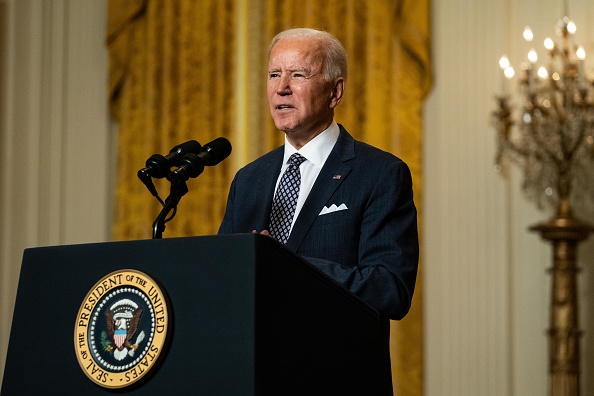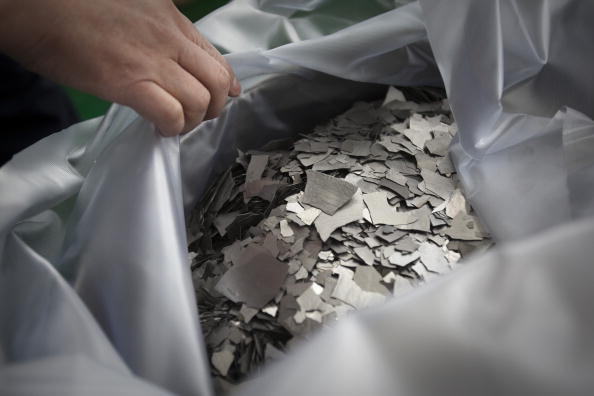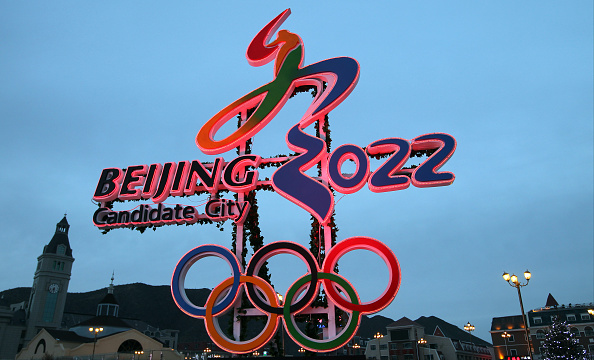
 Collective Approaches
Collective ApproachesU.S. President Biden met with G7 leaders this week by videoconference in his first public international appearance. Keeping in step with previous comments, Biden emphasized the need to cooperate against threats to global democracy, and despite not mentioning China by name, a group statement from the global leaders' on combatting "non-market oriented policies and practices" has been interpreted as targeting China.
As the Biden administration continues to settle into the White House, the U.S. ambassador to China has still yet to be chosen. Former Under Secretary of State for Political Affairs Nicholas Burns and former Chicago Mayor Rahm Eanuel are being floated as potential candidates for the post, according to people familiar with the matter. The ambassador position comes at one of the most tumultuous times for U.S.-China relations, and requires someone with an extensive diplomatic background. The former Chicago Mayor, who also served as President Barack Obama's White House chief of staff, may also be a contender for the U.S. ambassador post to Japan.
While the trade war will likely remain a key bilateral issue in the coming months, U.S. farm sales to China are expected to hit an all-time high this coming year, at $31.5 billion, according to the U.S. Agriculture Department's latest quarterly forecast. Commodities such as corn and soybeans are leading the surge, which will mark a $4.5 billion increase from last November's export levels. Read more on the future of the relationship in Early Warning Indicators in Biden-China Relations, David Shambaugh's latest article for China-US Focus.
 Rare Earth Control
Rare Earth ControlChina is exploring the possibility of banning rare-earth refining technology out of concern for national security, a person familiar with the issue said. Certain countries or companies could be specific targets in a ban, although China does not currently have concrete plans in place to do so.
Rare-earths, which have been the subject of tension between U.S.-China relations in recent years, are the raw minerals needed in producing complex forms of technology such as smartphones and electric car batteries. But as the world's largest supplier of the material and the technology required to purify the minerals, China could seriously stymie the many foreign industries that require rare-earths.
China may also consider limiting rare-earths themselves to the United States, according to people involved in the government, specifically targeting minerals involved in producing American F-35 fighter jets and other military-grade weapons. China has already implemented rare-earth restrictions on certain companies, including US-based Lockheed Martin over arms sales to Taiwan, and last month China's Ministry of Industry and Information Technology suggested scaling back exports of 17 rare-earth minerals, adding to speculation over the fate of the raw materials. The restrictions are intended to help "protect national interest and ensure the security of strategic resources," according to the Ministry.
But an additional restriction would likely ramp up tensions over technology and trade. In the event of a resurgent US-China trade war, China may also use its dominance in rare-earths as leverage, the same person said. For more on the fate of rare-earth trade, read China Will Harm Itself By Cutting Shipments of Rare Earths to US by Sara Hsu, Visiting Scholar at Fudan University.
 Olympic Bound
Olympic BoundChina is gearing up to host the 2022 Winter Olympics, despite some calls to boycott the international sporting event if it takes place in Beijing. A select number of lawmakers in the United States, Canada, and Britain have called for their country's boycott, including U.S. Representative Michael Waltz of Florida. However, a formal U.S. boycott is not currently on the table, according to White House press secretary Jen Psaki. "We're not currently talking about changing our posture or our plans as it relates to the Beijing Olympics," she said. In response to opposition over Beijing hosting the Winter Games, Foreign Ministry Spokesperson Wang Wenbin called it "highly irresponsible for some parties to try to disrupt, intervene and sabotage the preparation and holding of Beijing Winter Olympic Games to serve their political interests."
Prepared by China-US Focus editorial teams in Hong Kong and New York, this weekly newsletter offers you snap shots of latest trends and developments emerging from China every week, while adding a dose of historical perspective.
- 2021-02-13 Hopes for a Bullish Year
- 2021-02-05 “The Most Serious Competitor”
- 2021-01-29 Looking Towards Multilateralism
- 2021-01-22 Biden’s China Path
- 2021-01-16 Becoming a "Technological Superpower"
- 2021-01-08 Capital Chaos
- 2020-12-18 All Eyes on 2021
- 2020-12-12 Midwest to Middle Kingdom?
- 2020-12-04 Shifting Winds
- 2020-11-21 Multilateralism on the Move
- 2020-11-14 Staying Tough
- 2020-11-07 Battleground Ballots
- 2020-10-30 Knock Knock
- 2020-10-24 Looking Back and Moving Forward
- 2020-10-16 COVID Cluster
- 2020-10-10 Election Looming
- 2020-10-03 Golden Week Kicks Off
- 2020-09-26 Virtual Diplomacy